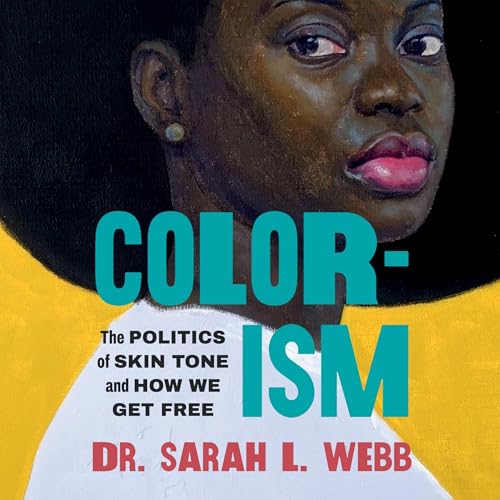
Colorism
The Politics of Skin Tone and How We Get Free
Failed to add items
Sorry, we are unable to add the item because your shopping cart is already at capacity.
Add to basket failed.
Please try again later
Add to Wish List failed.
Please try again later
Remove from Wish List failed.
Please try again later
Follow podcast failed
Unfollow podcast failed
1 credit a month to buy any audiobook in our entire collection.
Unlimited access to our all-you-can-listen catalogue of 15K+ audiobooks and podcasts.
Member-only deals & discounts.
Auto-renews at $16.45/mo after 30 days. Cancel anytime.
Pre-order for $23.99
-
Narrated by:
-
Sarah L. Webb
-
By:
-
Sarah L. Webb
About this listen
Colorism is the systemic oppression and social marginalization of people with darker skin tones and the privileging and empowerment of people with lighter skin tones. Colorism rivals similar societal problems like racism and sexism in that it leads to differences in everything from pay and wealth, healthcare outcomes, and political representation to family, social life, and romantic partnership. So why don’t we know how to talk about it or what to do about it? Often shrouded by the desire to “keep it in the family” and deemed taboo among Black and communities of color, in which people of the same race can vary in skin tone, colorism often skates by as sibling disagreements, personal preferences, and other interpersonal conflict, rather than a systemic issue. And it’s not just something that people of color face alone. White people, institutions, and even media and entertainment outlets can exhibit colorist behaviors and attitudes too.
Dr. Webb explains what colorism is, breaks down where and how it shows up in our lives, and address how it disenfranchises us all. Complete with a framework for addressing the harm that colorism causes, Colorism is an essential tool to help us move toward a more equitable, compassionate world.
No reviews yet
In the spirit of reconciliation, Audible acknowledges the Traditional Custodians of country throughout Australia and their connections to land, sea and community. We pay our respect to their elders past and present and extend that respect to all Aboriginal and Torres Strait Islander peoples today.


